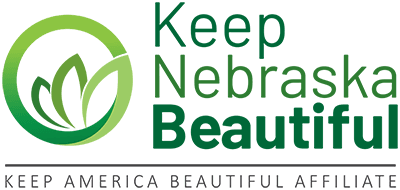Proper Disposal
Federal and state laws require businesses and industries to properly dispose of hazardous waste, but what about private consumers? The improper disposal of household hazardous waste is harmful to Nebraska’s environment and citizens. Would you pour furniture polish or motor oil into your drinking glass? By dumping hazardous waste down the drain or into the ground, you may be doing just that. Some hazardous wastes can attack the nervous system, and cause cancers and birth defects.
Take Action
Download the HHW Proper Disposal Brochure and learn how to dispose of your household hazardous wastes properly.
Download the HHW Less Toxic Alternatives Brochure to have a handy guide around your home.
Use less toxic alternatives for household products whenever possible.
Purchase only the amount of product you will use whenever possible, or give leftover products to someone who can use them.
Read and follow the directions on all containers for proper use and disposal.
Safe Disposal Options
Landfill
The following are items that may be safely disposed of in a landfill. For items such as glue or paint that need to be dried or solidified for disposal, you may spread the waste on newspaper or an old rag. Let the material dry or solidify completely before putting into the trash.
• Aerosol cans (empty)
• Fertilizer
• Oven cleaner (lye-based)
• Shoe polish
Any of the following items in solidified form only
• Auto body filler
• Glue (solvent-based)
• Nail polish
• Paint (latex & oil-based)
• Primer
• Varnish
Recyclables
Many Nebraska communities have recycling centers or drop-off sites at which household hazardous wastes can be recycled. Some gas stations and auto supply stores will accept fuel, oil, and batteries. Contact your local city or county offices for information on recycling centers in your area or call the Nebraska Department of Environmental Quality’s Solid Waste Division at (402) 471-4210.
• Automatic transmission fluid
• Antifreeze
• Brake fluid
• Car batteries
• Dry cleaning solvents*
• Fluorescent light bulbs*
• Freon
• Fuels (diesel, gasoline, kerosene)
• Gun cleaning solvents
• Motor oil & oil filters*
• Paint thinner
• Turpentine
*Some areas have limited resources for these materials; check with local recyclers.
Special Collection
Some communities have special collection days throughout the year. Contact your local affiliate or city or county office for dates or drop-off sites in your community. Old ammunition may be taken to a local fire station or police/sheriff’s office. There are 60 collection sites throughout the state participating in our Used Oil Collection Program to take clean used oil and many also accept antifreeze. At some auto supply stores and service stations, you can “trade in” your old car batteries. The following products should be taken to community collection sites or a licensed hazardous waste contractor.
• Ammunition
• Antifreeze
• Automatic transmission fluid
• Brake fluid
• Bug sprays
• Car battery or acid
• Carburetor cleaner
• Car wax
• Engine degreaser
• Floor-care products
• Fuel (gasoline, diesel, kerosene, etc.)
• Fungicide
• Furniture polish
• Insecticide
• Lighter fluid
• Mercury batteries/thermometers
• Metal polish with solvent
• Moth balls
• Motor oil
• Paints/primer (auto, model, oil-based)
• Paint thinner and stripper
• Rat poison
• Shoe polish
• Solvent-based glue
• Unmixed photographic chemicals
• Unmixed swimming pool chemicals
• Varnish
• Wood preservative
Expired medications should be taken to a Pharmaceutical Collection Event or a participating take-back pharmacy. If either of those options are not available in your community, you can take the following steps:
• 1. Pour liquid medicine into a sealable plastic bag or container.
• 2. If medicine is solid, crush it or add water to dissolve and place into bag.
• 3. Add cat litter or used coffee grounds to the bag.
• 4. Seal the bag and place it in your household trash.
• 5. Remove or eliminate all personal information on the medicine container and recycle where possible.
• For information about the Nebraska Meds program click on this link to their website.
Down the Drain
The following is a list of household items that may be dumped down the drain. However, make sure you run plenty of water down the drain with the items. Dispose of only one product at a time. When finished, rinse empty container and recycle or put it in the trash. Some products, such as expired medicines and some oven cleaners, should not be poured down the drain or flushed if you have a septic tank. Read individual labels to determine if a product will damage septic tanks or check with your local pharmacy about proper disposal for specific medicines.
• Alcohol-based lotions/perfumes
• Aluminum cleaners
• Ammonia-based cleaners
• Antifreeze
• Bathroom and drain cleaners
• Bleach
• Disinfectants
• Glue (water based)
• Hair relaxers/removers
• Household cleaners (water-based)
• Oven cleaner
• Paintbrush cleaner with TSP
• Paint stripper (lye-based)
• Photographic chemicals
• Rust remover (with phosphoric acid)
• Tub and tile cleaners
